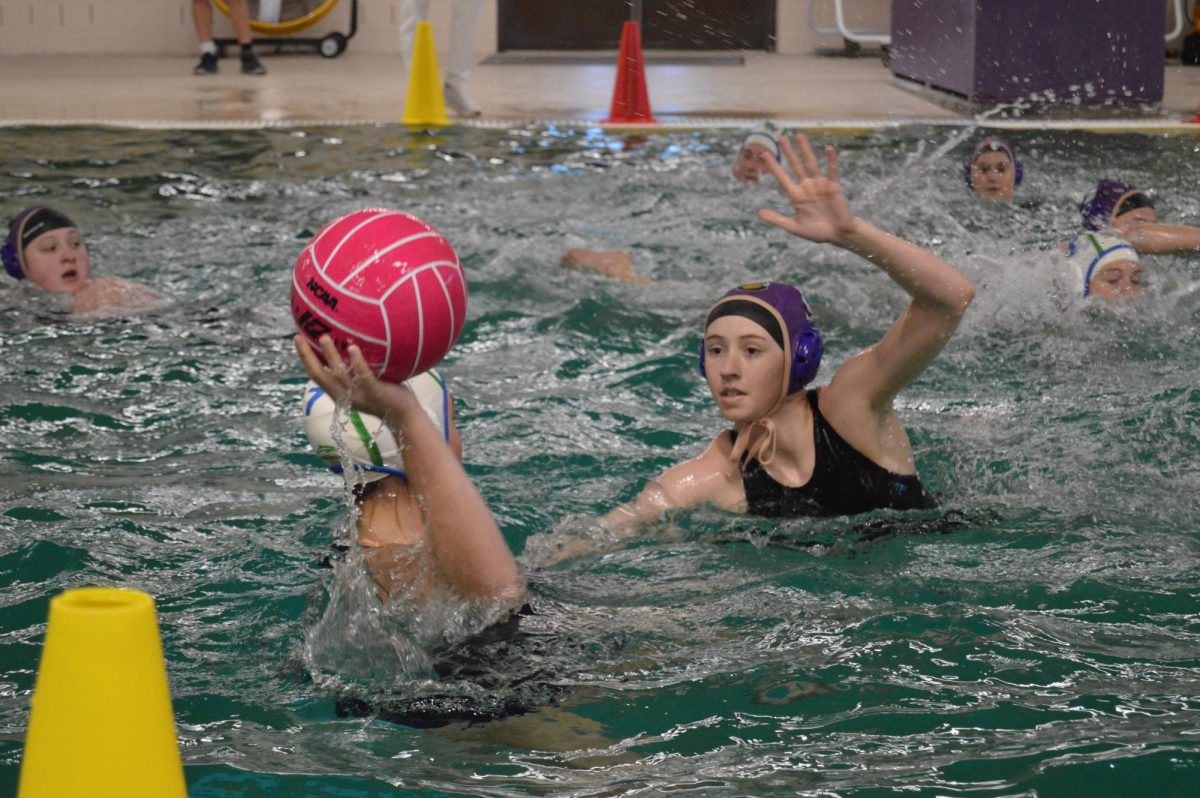For most athletes, sports injuries are as common as missing sixth period for a match or gorging on Goldfish crackers because it’s a game day. They miss a practice, they get taped by the athletic trainer and they’re back in the game.
Not every injury, however, is as easy as one, two, three.
“I think with concussions, they’re all different. Sometimes it could be, you know, as soon as a couple of days, or I’ve dealt with concussion that have lasted for over a year. It just depends on that individual. Everybody’s different,” athletic trainer Joshua Garcia said.
After sustaining a concussion or a cerebral injury, which results in unwanted movement of the brain, it’s possible for athletes to struggle to remember their identity, their name or even what sport they were playing. Along with memory problems, students can suffer from dizziness, nausea and frequent headaches.
Katie Akeson, CTE teacher and a former physical therapist, says her view on concussions has to do with the amount of activity a student’s brain undergoes every day, whether or not it’s realized.
“Brain injuries are really hard in the fact that like your brain is always working. A lot of times, people are continuing to do things and you don’t really realize how much you’re actually using your brain,” Akeson said. “You’re using your brain all the time. You’re using your brain to move your body around, you’re using your brain to walk, you’re using your brain to think, you’re using the brain to play games or talk on the phone or anything like that.”
Because of this immense amount of activity, brain injuries such as concussions can lead to tough recoveries.
“If there’s a big trauma, a lot of times people will go to therapy first. They can do different exercises to fix your vision or get rid of those headaches, sometimes you’ll have a neck pain involved with it,” Akeson said. “There’s a lot of expenses when it comes to just on the medical side of things. Usually, they have to get numerous CAT scans or imaging, those kinds of things to make sure that there’s not significant damage to the brain.”
The first and most basic step to concussion recovery, however, is to rest and give the symptoms time to calm down. According to some of the common concussion myths, rest isn’t the only comeback method. Whether these stereotypes prove true or not is up to the professionals.
“Back in the day, they used to say that you had to be in a dark room with all the lights turned off and no electronics. But that’s actually been disproven by research. Now it’s whenever you can tolerate it. So, if the light doesn’t bother you, then it’s okay to have light around,” Garcia said.
Today, it’s up to an individual’s level of tolerance to decide whether they should be exposed to light or not.
“A lot of times people say don’t go to sleep after because people are afraid you’re not going to wake up,” Akeson said. “That is a myth that has been proven as of recently that sleep is actually good for a concussion.”
Rylie Hangca, a senior and varsity volleyball athlete, sustained several concussions over the years. Hangca says the worst concussion took place in Kansas City, on her birthday.
“My 13’s year was probably the worst concussion I had. We were in a serving warm up and I was standing right by the net, and someone just served it,” Hangca said. “Immediate effects were [an] instant headache. After I got hit [I felt] dizziness, fatigue. It kind of just felt like I was out of it or in a haze.”
After the impact, a crowd of concerned family and friends rushed over.
“There’s a lot of instant rushing towards me, just to make sure I was okay and just to instantly check my symptoms just because it can be so life threatening,” Hangca said.
Hangca’s concussion led to a period where she couldn’t go to school, couldn’t play volleyball and wasn’t allowed on any screens.
“[I] was basically isolated in my room like for the first like three weeks maybe before I could like start being symptom free and start getting into the actual recovery part,” Hangca said.
Her recovery was centered around physical therapy, using sport-specific machines like the stationary bike, treadmill, and working on motor skills. Despite having more concussions since, Hangca’s experience taught her to take the injury more seriously.
“There’s a bunch of stereotypes, like concussions aren’t super serious and they’re not mental, that they’re not the most serious injury. I think that one’s a lie,” Hangca said. “There’s things such as post-concussion syndrome that can lead to seizures and those life-threatening things.”
Dylan Hite, senior, is another student who’s suffered the effects of a severe concussion. Hite plays the injury-heavy sport of football.
“I took on a block and the kid led with his head. I fell to the ground, bounced my head on the turf and couldn’t get back up,” Hite said. “There’s an immediate pause. Everyone’s worrying about you, there’s a lot of questions, but at that point in time, you actually have no control. You’re just happy not to be worse off.”
Prior to the accident, Hite was hospitalized and couldn’t return to school for two to three months.
“There was a point there where everything felt like I was walking on clouds, where everything was so spacey and I wasn’t able to focus on particular things,” Hite said.
Besides the physical therapy side of his recovery, Hite experienced trouble reconnecting with friends.
“It took me out of school for the entire winter,” Hite said. “I ended up going back to school a couple months in, and I was going part time so I only went to one or two classes. I was wearing sunglasses because the lights were too bad. It took it one day at a time, talking to one friend at a time, trying to connect and over time everything will pan out if you just keep pushing through.”


